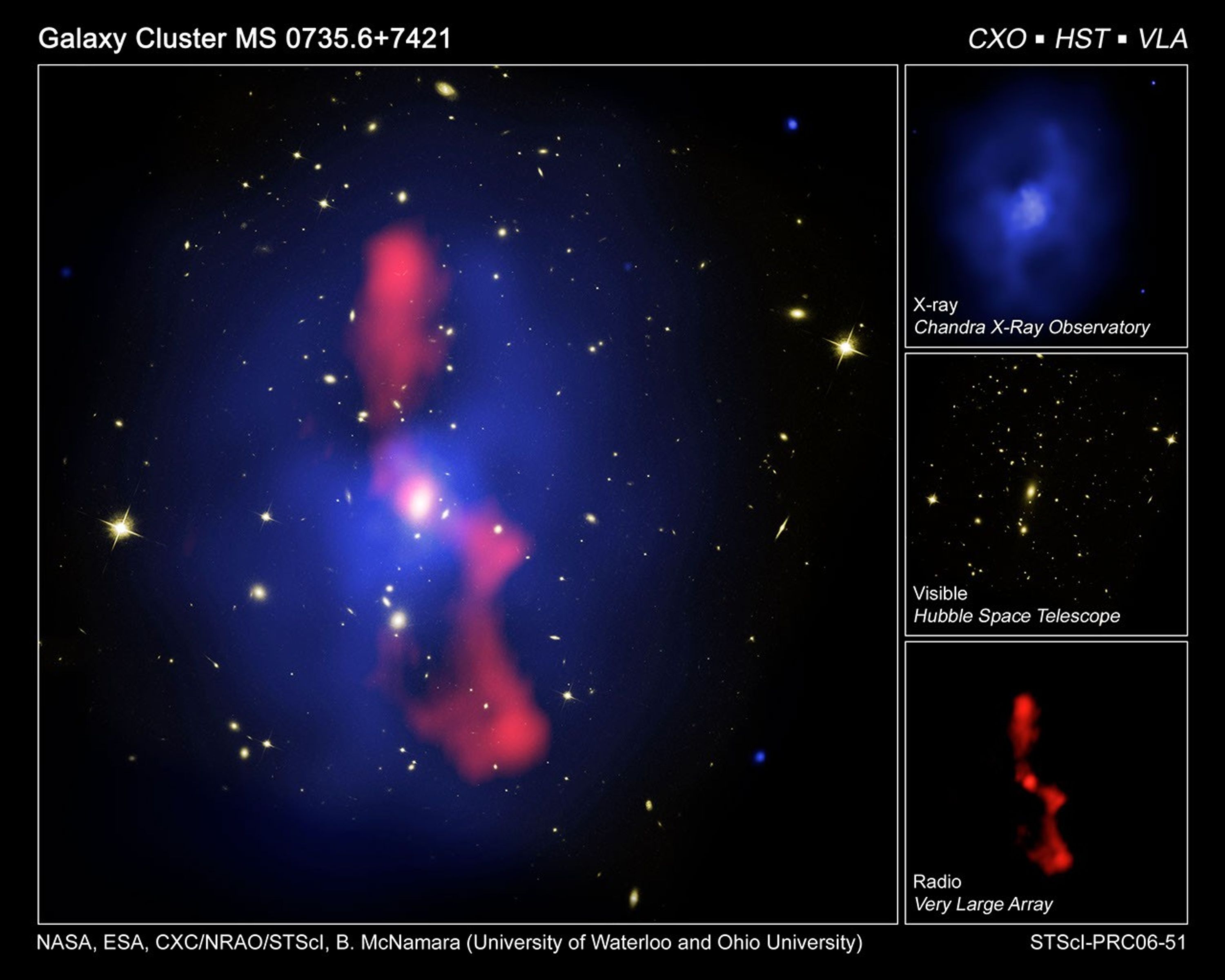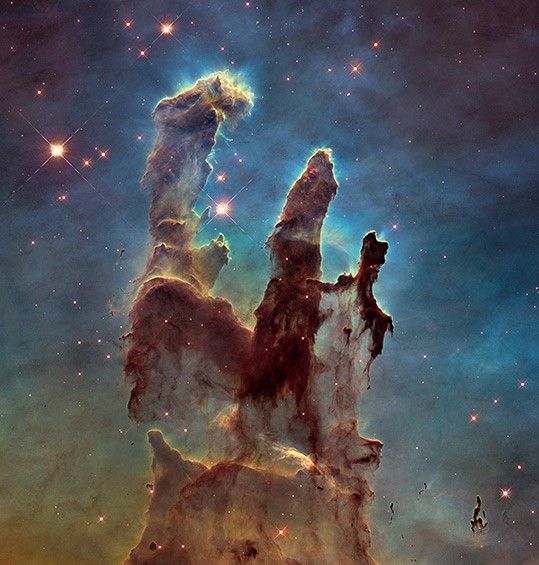1 min read
Radio Image of Galaxy Cluster MS 0735

About the Object
- R.A. PositionR.A. PositionRight ascension – analogous to longitude – is one component of an object's position.07h 41m 50.2s
- Dec. PositionDec. PositionDeclination – analogous to latitude – is one component of an object's position.74° 14' 51.0"
- ConstellationConstellationOne of 88 recognized regions of the celestial sphere in which the object appears.Camelopardalis
- DistanceDistanceThe physical distance from Earth to the astronomical object. Distances within our solar system are usually measured in Astronomical Units (AU). Distances between stars are usually measured in light-years. Interstellar distances can also be measured in parsecs.About 2.6 billion light years
- DimensionsDimensionsThe physical size of the object or the apparent angle it subtends on the sky.4 arcminutes (3 million light-years or 900 kiloparsecs) wide
About the Data
- InstrumentInstrumentThe science instrument used to produce the data.VLA>"A" Configuration
- Exposure DatesExposure DatesThe date(s) that the telescope made its observations and the total exposure time.October 24, 2004
- Object NameObject NameA name or catalog number that astronomers use to identify an astronomical object.MS 0735.6+7421, Galaxy Cluster MS 0735
- Object DescriptionObject DescriptionThe type of astronomical object.Galaxy Cluster
- Release DateNovember 2, 2006
- Science ReleaseHost Galaxy Cluster to Largest Known Radio Eruption
- CreditNRAO/VLA, and L. Birzan and team (Ohio University)

Red (VLA): radio
Related Images & Videos

Galaxy Cluster MS 0735
This is a composite image of galaxy cluster MS0735.6+7421, located about 2.6 billion light-years away in the constellation Camelopardalis. The image represents three views of the region that astronomers have combined into one photograph. The optical view of the galaxy cluster,...

X-ray Image of Galaxy Cluster MS 0735
This image of galaxy cluster MS 0735.6+7421 was taken by the Chandra X-ray Observatory in November 2003. Diffuse, hot gas with a temperature of nearly 50 million degrees permeates the space between the galaxies in the cluster. The gas emits X-rays, which are seen as blue in this...

Visible-Light Image of Galaxy Cluster MS 0735
This image of galaxy cluster MS 0735.6+7421 was taken with NASA's Hubble Space Telescope in February 2006. The Advanced Camera for Surveys image shows dozens of galaxies bound together by gravity. Diffuse, hot gas with a temperature of nearly 50 million degrees permeates the...
Share
Details
Claire Andreoli
NASA’s Goddard Space Flight Center
Greenbelt, Maryland
claire.andreoli@nasa.gov






























